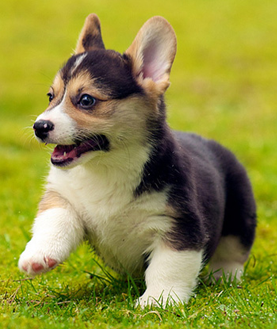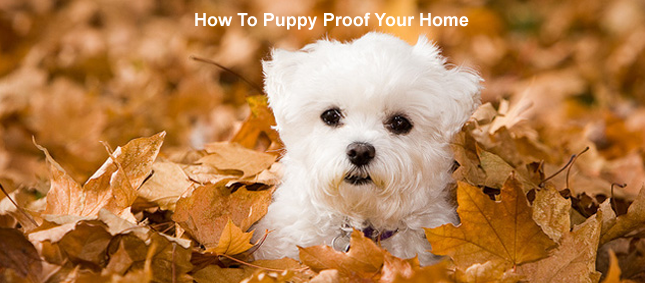How To Puppy Proof Your Home
When adopting a puppy from a shelter, it’s important to make sure that your home is ready before you pick him up. By making your home safe and comfortable prior to his arrival, the transition will be as easy as possible! Shelter dogs might already have a difficult time making a change, so you will both find it much more pleasant if everything is in place.
Be Cautious
Puppies always seek out exactly what you don’t want them to have! They are curious by nature and explore everything they see with their mouths, and those puppy mouths have sharp little puppy teeth! Have this in mind and be careful when puppy proofing your home.
- Tuck cords behind furniture and underneath carpeting. When possible, tie them together in a bundle.
- Keep hazardous materials locked in cabinets or use baby-proof cabinet latches so they cannot be pried open. Some of the most dangerous chemicals to dogs include:
1. Antifreeze
2. Cleaners
3. Insecticides
4. Mothballs
5. Fertilizer
6. Rat poison - Get rid of certain plants that your puppy may chew. Some of them are very toxic.
1. Aloe
2. Lilies
3. Amaryllis
4. Eucalyptus
5. English ivy
6. Azalea
7. Birds of paradise - Be mindful of people food, and try to not ever get him hooked on getting scraps. Visitors might not know what is toxic to your pet and may feed him something on the “no-no” list. It’s safer for everyone if your dog just doesn’t get fed people food. Some of the worst foods for him include:
1. Chocolate
2. Avocado
3. Onions
4. Garlic
5. Grapes
6. Raisins
Things to Remember
It can get overwhelming, especially if you’ve never had a puppy before. Just remember that you always need to expect that your puppy will get into trouble. If you plan for the worst, you will be prepared for anything, and if you prevent accidents, you will have a healthy and safe puppy experience! Always remember some key things around your house:
puppy will get into trouble. If you plan for the worst, you will be prepared for anything, and if you prevent accidents, you will have a healthy and safe puppy experience! Always remember some key things around your house:
- Never leave your puppy alone, and if he will be alone, crate him.
- Keep your toilet lid closed.
- Keep fireplaces blocked off.
- Don’t leave small objects around to be swallowed; even coins look delicious!
- Keep trash cans locked or in a room he cannot access.






